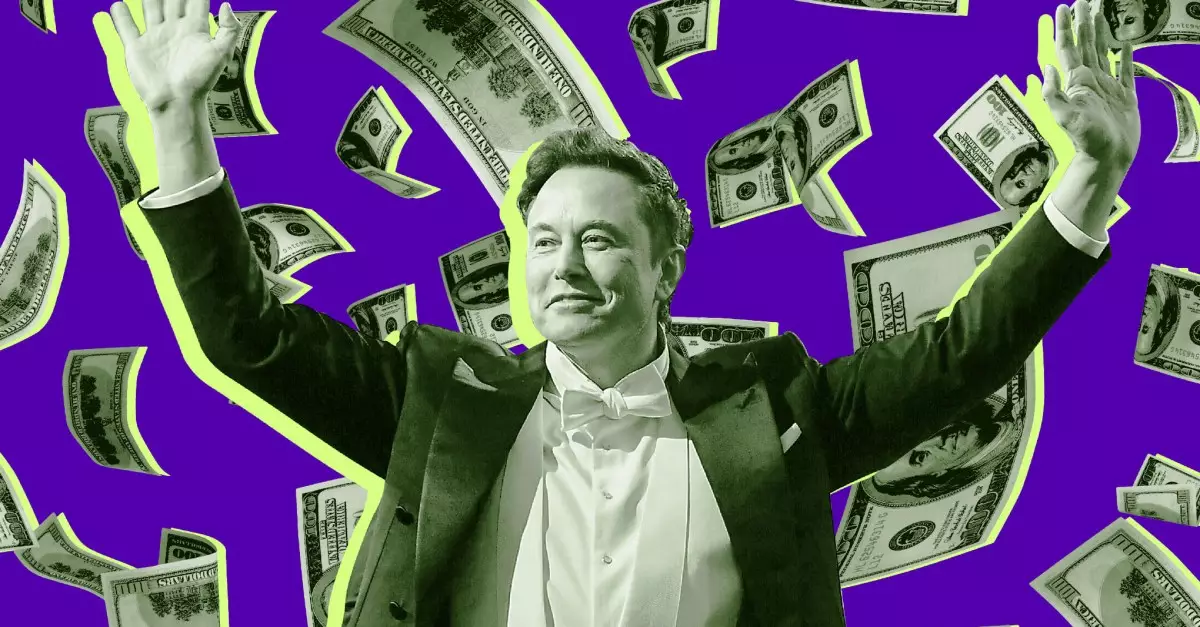In a bold and strategic maneuver within the competitive landscape of artificial intelligence, Elon Musk has made headlines by leading a staggering bid of $97.4 billion to acquire the nonprofit arm of OpenAI. This development signifies not merely a financial transaction but a fundamental shift in the dynamics of AI governance and direction. Musk’s bid was officially submitted to OpenAI’s board early on a Monday morning, highlighting the urgent and pressing nature of his intentions.
The coalition backing Musk’s offer is formidable, featuring his own AI startup, xAI, alongside notable investors such as Valor Equity Partners, high-profile Hollywood executive Ari Emanuel, and venture capital firm 8VC, founded by Palantir’s co-founder Joe Lonsdale. The combination of Musk’s enterprise and the financial muscle of these investors makes for a potent force designed to reshape the future of AI technology.
As Musk navigates this complex landscape, OpenAI finds itself at a critical crossroads. CEO Sam Altman is already engaged in a multifaceted strategy aimed at transitioning the organization into a for-profit entity—a move that could dramatically alter its operational framework and mission. With an ambitious goal of raising $40 billion at a staggering $340 billion valuation, combined with the pursuit of a $500 billion project focused on AI infrastructure, OpenAI’s future remains clouded with uncertainty.
Musk’s re-entry into a space he once helped establish adds layers of tension and unpredictability to OpenAI’s plans. Having co-founded OpenAI in 2015 and stepping away in 2019, Musk’s motivations seem to revolve around a philosophical belief that the organization’s path has diverged from its initial commitment to promote the safe and transparent development of AI technologies. Musk expressed this sentiment through a statement relayed by his attorney Marc Toberoff, asserting the need for OpenAI to return to its roots as a “safety-focused force for good.”
The implications of Musk’s bid extend beyond just financial considerations; they stir a significant debate regarding the governance of AI technology and ethical practices in its development. His insistence on ensuring that OpenAI adheres to an open-source model stands in stark contrast to its recent strategic moves towards greater commercialization. This brings forth a moral dilemma: Is it possible for AI to retain its commitment to ethical use while being propelled by profit-driven ventures?
Additionally, Musk’s announcement complicates the planned transition of OpenAI to a for-profit model, as his team has voiced an intention to match or surpass any counter-offers that may arise, putting Altman and his stakeholders in a delicate position. The challenge of balancing diverse interests—including Microsoft, which has vested interests in equity negotiations—adds further intricacies to an already tangled web of relationships within the AI ecosystem.
As Silicon Valley’s AI rivalry heats up with Musk’s audacious bid, the outcome promises to shape not only the future of OpenAI but also the broader landscape of artificial intelligence development. The ongoing struggles between profit motives and ethical imperatives underscore a pivotal moment in the evolution of technology, with far-reaching consequences for society at large.

